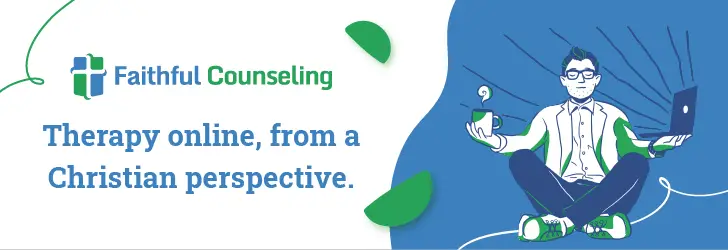As a BetterHelp affiliate, we receive compensation from BetterHelp if you purchase products or services through the links provided
Reiki, an energy healing practice originating in Japan, has gained significant popularity worldwide, including among Christians seeking alternative approaches to well-being. As a non-invasive, gentle, yet powerful technique, Reiki focuses on balancing and harmonizing the body’s subtle energy systems to promote healing on various levels—physically, emotionally, mentally, and spiritually. Despite its appeal, the compatibility of Reiki and Christianity has been a subject of ongoing debate among Christian communities, as some practitioners and believers question whether it aligns with their fundamental beliefs and scriptural teachings.
The history of Reiki dates back to the early 20th century, with its founder, Dr. Mikao Usui, who claimed that he rediscovered this ancient healing technique after a profound spiritual experience on Mount Kurama in Japan. Reiki practitioners often attribute universal life energy, or “ki,” as the vital force that flows through all living beings. This energy is channeled through the specific practice of Reiki to assist in the healing process. On the other hand, Christianity holds the Bible as its sacred text, guiding faith, conduct, and relationship with God and Jesus Christ. The biblical perspective offers its interpretation of healing and wellness, focusing on prayer, worship, and God’s divine power.
In seeking to understand the relationship between Reiki and Christianity, it is essential to examine the core principles of each system, along with the concerns, questions, and potential common ground shared by those who practice these traditions. By looking at the role of prayer, healing, and worship in Reiki and Christianity and anecdotes from Christian practitioners of Reiki, it is possible to recognize the complexities and nuances of this ongoing discussion.
Key Takeaways
- Reiki and Christianity represent distinct healing modalities, with Reiki focusing on energy and balance while Christianity emphasizes prayer and divine intervention.
- The compatibility of Reiki and Christianity is ongoing as practitioners and believers examine core principles, concerns, and potential common ground.
- Understanding the role of prayer and worship in Reiki and Christianity can help shed light on the complexities of this relationship, offering insights for individuals considering incorporating Reiki into their Christian practice.
Reiki and Christianity Overview
Reiki, an ancient Japanese healing technique, has recently gained significant popularity. This gentle, non-invasive practice balances the body’s energy, promotes relaxation, and supports overall well-being. Many people find comfort and healing through Reiki, but some question its compatibility with Christianity.
The foundation of Reiki lies in the belief that a life force energy flows through all living beings. When this energy becomes unbalanced or blocked, it can lead to illness or emotional distress. Reiki practitioners use their hands to channel healing energy, helping to restore balance and promote wellness. It’s essential to understand that this energy work is not affiliated with any religion.
When it comes to Christianity, followers believe in the healing power of Jesus Christ and often turn to prayer to seek divine intervention and comfort. They believe Jesus can heal through miracles, but Christians also embrace various medical practices and therapies. Reiki practitioners do not claim to “heal” in the same capacity nor rely on any specific religious faith.
Notably, opinions on Reiki and Christianity’s compatibility vary among Christians. Some argue that using Reiki with prayer may deepen one’s connection with God and enhance the healing experience. In contrast, others express concern that engaging in energy work might lead to non-Christian spiritual practices or beliefs.
It’s essential for individuals interested in pursuing Reiki to understand the origins and principles of the practice. It’s equally important for them to explore their personal beliefs and the teachings of their faith. Ultimately, the choice to incorporate Reiki into one’s spiritual journey lies in one’s own hands, guided by personal discernment and faith convictions.
Reiki and Christianity aim to promote healing and well-being, but their foundational beliefs differ. The compatibility of these practices ultimately depends on the individual’s interpretation of their faith and what resonates with them.
 Seek faith-based healing today.
Seek faith-based healing today.
History of Reiki
Once upon a time, a compassionate teacher named Mikao Usui discovered the mystical practice of Reiki. Far beyond the mountaintops, in the early 20th century, he embarked on a spiritual journey that led him to unearth this powerful healing art. As a well-read Buddhist monk, Usui was intrigued by ancient Buddhist texts that contained shared wisdom on healing practices.
The fascinating story of Reiki unfolds as Usui tirelessly studies these texts, delving deep into their meaning. In a stroke of serendipity, he experienced a transformative spiritual awakening on the sacred Mount Kurama. At this moment, the gift of Reiki, a unique blend of divine energy and spiritual insight, revealed itself to Usui.
From there on, Reiki’s legacy blossomed as Usui nurtured the practice, refining the techniques with utmost care and diligence. He brought people together, bestowing Reiki onto students of diverse backgrounds who sought healing and enlightenment. These early practitioners embraced Reiki’s touch and became beacons of hope, spreading the practice near and far.
As the years passed, Reiki continued evolving, branching out unexpectedly. Reiki proved its fluid adaptability in the ever-shifting tapestry of human experience, integrating harmoniously into various cultural and religious landscapes, including Christianity. Though Reiki’s history is rooted in the Buddhist tradition, it transcends dogma, speaking a universal language of healing, compassion, and love.
Today, Reiki remains a shining testament to the power of human resilience and the enchanting beauty of spiritual discovery. The timeless tale of Usui’s journey is preserved in the hearts of Reiki practitioners, an eternal flame guiding the hands of those who seek to heal the world.
The Biblical Perspective
From a biblical perspective, many Christians often wonder about the compatibility of Reiki with their faith. The question arises: does Reiki conform to the principles and teachings of Jesus Christ and the scriptures?
The Bible emphasizes the importance of spiritual healing, as Jesus performed many miraculous healings throughout his ministry. In the New Testament, countless examples show the power of healing through faith in God and the laying on of hands. Some may argue that Reiki shares similarities with these practices, given that it involves channeling energy by placing hands over certain areas of the body.
At the same time, some Christians argue that the origins of Reiki, which stem from Japanese spirituality, contradict the teachings of Christianity. They cite concerns about the potential worship of false gods and idols and the mixing of religious practices. Moreover, critics question the validity of Reiki’s healing energy and the role of a “universal life force” in the process.
Proponents of Reiki, on the other hand, argue that it is a spiritual practice that transcends religious affiliations, focusing on the experience of love, harmony, and healing. They contend that Reiki practitioners merely channel the healing energy from the same source accessed by Jesus and his disciples, emphasizing that the technique promotes peace and well-being rather than contradicting the core values of Christianity.
The Church’s stance on Reiki remains varied, and opinions on its validity and compatibility with Christianity are diverse. Ultimately, it falls upon individual believers to research, pray, and conclude about the biblical perspective on Reiki and how it fits within their personal faith journey.
In summary, the biblical perspective of Reiki is a complex issue that requires thoughtful consideration, with varying viewpoints held by Christians who either embrace or oppose the practice. Navigating this discussion requires engaging with faith, scripture, and church teachings, all while recognizing that spiritual healing can manifest in many forms through the love and grace of Jesus Christ.

Reiki Principles and Practices
Energy and Life Force
Reiki, a healing practice that originated in Japan, focuses on the universal life force energy or ki (also called chi or prana in other cultures). This energy is believed to be the vital essence animating all living beings. Reiki practitioners aim to restore balance and promote harmony within the body, mind, and spirit by tapping into this energy.
Reiki embraces the idea that a healthy flow of ki is essential for well-being. Physical or emotional issues may arise when this flow is blocked or disrupted. So, Reiki seeks to clear these blockages, allowing the life force energy to flow freely and support the body’s natural healing processes.
Healing Techniques
At the core of Reiki lies the “laying on of hands” technique. During a session, the practitioner gently places their hands on or slightly above the recipient’s body, acting as a conduit for transferring healing energy. This non-invasive approach aims to stimulate the recipient’s own healing power and enhance their sense of well-being.
Aside from hands-on healing, Reiki practitioners also use visualization and meditation techniques to channel positive energy and release negative emotions, further contributing to the holistic healing process.
Symbols and Attunements
Reiki practitioners harness the power of sacred symbols, each representing a unique energy, to focus their intentions and amplify the healing effects. These symbols, introduced through a ritual known as an “attunement,” enable the practitioner to connect with the universal energy on a deeper level.
An attunement is a sacred process that involves a Reiki Master opening the practitioner’s energy channels, allowing them to access and transmit the life force energy more effectively. This step is crucial in one’s journey as a Reiki practitioner, as it strengthens their connection to the universal energy and enhances their healing capabilities.
In conclusion, Reiki is a subtle yet potent practice that seeks to restore the body’s natural balance by harnessing the universal life force energy. Through hands-on healing techniques, sacred symbols, and attunements, practitioners aim to promote harmony, well-being, and inner peace for themselves and others.
Christian Concerns and Questions
In exploring the practice of Reiki, some Christians have raised concerns and questions about its compatibility with their faith. They worry Reiki may challenge core Christian beliefs, such as worshiping one true God and avoiding idolatry and occult practices.
One major concern is that Reiki could be seen as a form of idolatry. Reiki practitioners often call upon the universal life force energy, or “ki,” to help heal themselves and others. For some Christians, relying on power other than God may be perceived as worshipping false idols.
Another issue that sparks questions is the potential connection between Reiki and the world of the occult. Reiki’s origin as a Japanese spiritual practice and its use of symbols and attunements can lead some Christians to wonder if it harbors dark or hidden forces. While many Reiki practitioners view these elements as neutral, purely intended for healing purposes, skeptics may still draw comparisons to various esoteric and occult practices.
Furthermore, the principles of Reiki may seem to align with New Age philosophy more than traditional Christian values. Reiki promotes the idea that individuals can draw upon their spiritual energy to effect healing, which may be interpreted as elevating personal power and autonomy above faith in God’s divine intervention.
Despite these concerns, it’s important to note that many Reiki practitioners identify as Christian and believe their practice complements their faith, not contradicts it. These individuals often view Reiki as a tool to enhance their spiritual connection with God rather than a competing belief system. They argue that as long as the intention remains pure and God-centered, there’s room for Reiki in a Christian framework.
In conclusion, the relationship between Reiki and Christianity is not cut and dry. It truly depends on individual beliefs and perspectives. As such, Christians interested in Reiki should carefully weigh these concerns and questions, engage in prayerful discernment, and ultimately make a personal decision that aligns with their faith path.
Finding Common Ground
Reiki, a healing art originating from Japan, and Christianity, a faith based on the teachings of Jesus Christ, may, at first glance, appear quite different. However, upon closer inspection, it becomes evident that there is room for common ground between the two. The core of both beliefs revolves around spiritual healing and the desire to bring peace and harmony to individuals and their communities.
One aspect where Reiki and Christianity intersect is through the concept of healing practices as a spiritual gift. In Christianity, there is the belief in spiritual gifts granted by God to deeply faithful individuals. These gifts can manifest in various ways, such as the ability to heal, prophesy, or perform miracles. Reiki, conversely, is perceived as a method of channeling universal life force energy to promote physical and emotional well-being. In both cases, these practices showcase the idea of healing as a spiritual act.
Another point of connection lies in the importance of faith. For any healing practice to be effective, the practitioner and the recipient must firmly believe in the power of their chosen method. In Christianity, faith in God and the healing power of Jesus is the key to unlocking the benefits of spiritual healing. Similarly, in Reiki, trust in the flow of energy and the universe’s wisdom allows the practitioner to channel positive energy to others.
When examining the underlying principles of these two belief systems, it is clear that compassion and empathy are highly valued. Both Reiki practitioners and Christian healers share a desire to alleviate the suffering of others and to support the well-being of their communities. This shared motivation creates the foundation for understanding between the two groups.
Despite their different origins and practices, Reiki and Christianity can find common ground in their shared emphasis on spiritual healing, faith, and compassionate service. By acknowledging these similarities, practitioners from both traditions can engage in open dialogue and collaborative efforts, ultimately benefiting those they seek to heal.
The Role of Prayer and Worship in Healing
Within both Reiki and Christianity, the power of prayer and worship plays an integral role in the healing process. For many, these practices provide solace, comfort, and connection to a higher power during physical or emotional distress.
In Christian teachings, prayer is seen as a direct line of communication with God. Through heartfelt supplications, believers can experience inner healing by fostering a more profound faith and trust in the Almighty. Jesus and His followers prayed fervently throughout the Bible, allowing the Holy Spirit’s transformative power to create miraculous healings.
Worship, as well, holds a crucial place in the Christian tradition. Praising God through songs, prayers, and contemplation can generate a powerful sense of divine presence. As believers immerse themselves in worship, they often report feelings of wholeness, spiritual renewal, and even physical healing.
Although not strictly religious, Reiki shares some essential components with Christian prayer and worship. Reiki practitioners believe in harnessing an omnipresent life-force energy that permeates existence, much like the Holy Spirit. By channeling this energy through their hands, they touch the recipient, invoking a sense of calm, balance, and relief from pain or stress.
Christian prayer, worship, and Reiki healing share a common thread; they inspire an intimate connection with the supreme, transcendent power governing creation. This connection can create a fertile ground for physical, emotional, and spiritual healing when cultivated mindfully and reverently.
It’s crucial, however, for adherents of both Christian and Reiki practices to approach these healing methods with humility, recognizing that the ultimate source of healing lies beyond human understanding. Through respect for the sacred and a genuine desire for well-being, the miracles of transformation can undoubtedly unfold.

Advice for Christians Considering Reiki
It’s natural for some Christians to feel unsure about trying Reiki, given that it is not explicitly rooted in their religion. However, many have discovered a harmonious balance between their faith and this healing practice. If you’re a Christian considering Reiki, here are some insights.
Firstly, explore the opinions of your church community and pastor. They are valuable sources of spiritual guidance and can offer wisdom on incorporating Reiki into your faith-based life. While some may embrace alternative healing methods, others might hold reservations. Therefore, ensuring that your decision aligns with your beliefs and values is essential.
Moreover, approach a Reiki master with your questions and concerns. They can provide clarity on the principles of Reiki and exactly how it fits with Christianity. Remember, Reiki is a healing technique focused on energy balance, not a religious doctrine. Thus, open conversations with a Reiki master can help dispel concerns about conflicting beliefs.
When assessing the compatibility of Reiki and Christianity, it’s worth delving into the core intent of Reiki. The primary goal is to promote healing, well-being, and peace – values that align with the teachings of Christianity. Some view Reiki as part of God’s healing energy, seeing it as a beautiful complement to their faith.
One notable aspect to pay heed to is honesty and truth. Both Christianity and Reiki place significant importance on being truthful. So, as you navigate this journey, remain honest with yourself and others about your intentions and experiences. Transparency will aid your spiritual growth and enhance your relationships within your religious circle.
Finally, exercise discernment and critical thinking. While exploring Reiki, maintain your focus on the core tenets of Christianity. By embracing what aligns with your religion and filtering out elements that don’t, you can create a harmonious balance between the two.
In summary, Christians interested in Reiki should communicate openly with their church community, consult with Reiki masters, seek the truth, and exercise discernment. These steps can help integrate this alternative healing method into their lives while staying true to their faith.
Find Comfort and Healing in Faith
Case Studies and Testimonials
In the realm of Reiki and Christianity, individuals have found solace and healing through the integration of these two powerful approaches. Let’s look at some remarkable case studies and testimonials demonstrating Reiki and Christianity’s interconnectedness in promoting physical and emotional well-being.
One striking example comes from a woman named Susan. After falling and breaking her ankle, she was in excruciating pain and found little relief through traditional medicine. Deciding to try Reiki, she prayed for guidance and was led to a Reiki practitioner who was also a devout Christian. During her sessions, Susan felt a warm, healing energy flow through her, easing the pain in her ankle. To her amazement, she experienced a noticeable reduction in swelling and discomfort, attributing both her faith and the Reiki energy as sources of her healing.
Then there’s the case of Paul, a man suffering from chronic anxiety and depression. Feeling lost and disconnected from his Christian roots, he sought help from a therapist who recommended exploring alternative healing practices, including Reiki. Paul was skeptical at first but found solace in praying during his Reiki sessions, and soon he began to witness a significant shift in his emotional well-being. Through prayer and Reiki energy, Paul reconnected with his faith and ultimately found relief from his emotional turmoil.
In another instance, a group of nurses working at a Christian hospital was trained in Reiki to offer nontraditional healing methods alongside conventional medicine. In their practice, they discovered that many patients experienced a decrease in discomfort and an overall improvement in their health, leading them to believe that the combination of health care, Reiki, and Christian faith created an ideal environment for healing.
Last, let’s not forget Mary, a cancer survivor. Struggling with the side effects of chemotherapy, she turned to prayer and Reiki to help her cope. She found solace in the gentle touch of Reiki healing and felt God’s presence through the healing energy. Mary’s faith, combined with the empowering energy of Reiki, enabled her to face the challenges of her treatment with resilience and strength.
These examples showcase the profound impact of integrating Reiki with Christianity on physical healing and emotional well-being. With faith as their foundation, these individuals demonstrate that true healing encompasses the mind, body, and spirit and that there’s great potential in exploring the harmony between Reiki and Christian beliefs.
Frequently Asked Questions
Is Reiki compatible with Christian beliefs?
Reiki may appear to some as a holistic healing practice as conflicts with Christian beliefs. However, it’s essential to remember that Reiki promotes self-healing, relaxation, and stress reduction. Many Christians find these benefits complementary to their faith, believing that healing comes from God. It’s all a matter of individual perspective and personal beliefs.
How does the Church of England view Reiki?
The Church of England doesn’t have an official stance on Reiki. The views of individual congregations and clergy members may vary. However, it’s common for Christians to embrace Reiki as an adjunct to their faith, seeking solace and healing while maintaining their religious practices and beliefs.
Can Reiki and the Holy Spirit coexist?
Some Christians argue that there’s room for both Reiki and the Holy Spirit in their spiritual lives. They believe Reiki’s energy comes from a source akin to the Holy Spirit and that utilizing Reiki does not conflict with their beliefs. Others, however, may view Reiki as a separate and incompatible practice. Ultimately, it depends on an individual’s viewpoint and personal faith journey.
What is the connection between chakras and Christianity?
Chakras are energy centers within the body, according to Eastern spiritual traditions. They are not directly mentioned in the Bible or Christian teachings. Despite this, some Christians find that balancing their chakras aligns with their belief in harmony with the Creator. They may see chakras as a metaphor for spiritual connection and growth rather than a literal interpretation.
How do Christian healers incorporate Reiki?
Christian healers who practice Reiki often combine it with elements of prayer, meditation, or laying on of hands. These healers see Reiki as another way to channel God’s healing love, aiming to strengthen the recipient’s connection with faith. Each healer may uniquely incorporate Reiki into Christian practices, guided by personal beliefs and experiences.
Are there biblical references to energy healing?
While the Bible doesn’t explicitly mention energy healing in the sense of Reiki, it does describe various miracles of healing by Jesus and his followers. These miracles can be seen as evidence of God’s healing power. Some Christians may interpret these scriptural passages as supportive of alternative healing practices, while others may not make the direct connection. The interpretation, as with many matters of faith, is personal and subjective.
Image Courtesy:DepositPhotos
- How to Transform a Home’s Patio Space into a Relaxing Space - March 23, 2025
- 5 Strategies to Use a Cell Phone to Help Manage Your Stress - March 23, 2025
- 4 Ways to Use Measurements to Create a Relaxing Sleep Space - March 23, 2025
This site contains affiliate links to products. We will receive a commission for purchases made through these links.




